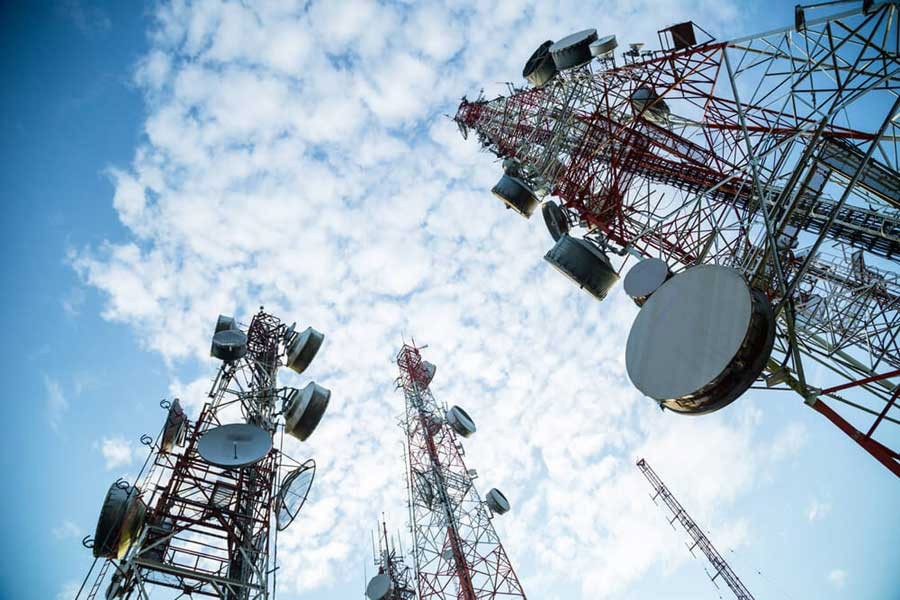In this era of globalisation, people's daily life communication has become easier and more flexible. People are now connecting to the internet, paying their utility bills, and buying tickets online using their mobile phones, eventually creating a mobile phone-dependent ecosystem.
The growing trend of using modern technology and devices have created an enormous environment for a new industrial revolution, 'Industry 4.0,' envisioned to have probably a more far-reaching impact on society than the previous three industrial revolutions.
Pushing GDP growth
Through employment creation and adding value to GDP, the usage of digital devices plays a vital role in improving a country or region's economy.
According to GSMA (Global System for Mobile communications Association), mobile technologies and services in 2021 have contributed 5 per cent to the Asia-Pacific region's GDP, and 8.8 million new jobs have been created in this region through this mobile ecosystem in this period. In 2019, Bangladesh's mobile technology and services generated USD 16 billion in economic value, equivalent to 5.3 per cent of its GDP.
During the COVID-19 pandemic, the internet played an important role in maintaining a balance between social and work life. In collaboration with the government authorities, local mobile operators have played a crucial role in creating public awareness by giving regular updates on COVID-19. Also, the customer database of the mobile operators and the delivery of the COVID-19 reports through mobile SMS have helped the key stakeholders to take timely action.
Due to the low handset device prices and low call rates due to fierce competition among local phone operators, Mobile phones have historically served as a tool for connecting the common people in the LDC countries like Bangladesh. This mobile ecosystem has worked as a helpline for the common people amidst the pandemic.
e-commerce thriving
An increase in internet usage has led to the increased usage of various e-commerce platforms, MFS (Mobile Financial Services), and online streaming platforms.
Local e-commerce platforms that had already achieved steady growth in the pre-pandemic period saw tremendous growth during the pandemic. A Dublin-based research firm has projected a CAGR (compound annual growth rate) of 12.30 per cent in the e-commerce market between 2022-2026, which will take the local e-commerce market size from TK 56,870 crore in 2021 to around TK 1.5 lakh crore by 2026.
Crucial changes in human behaviour due to COVID-19 lead us to a digitalised society where technology will play a key role in shaping a country's economy.
Transitioning to 5G
Presently, 5G operations are being deployed across countries worldwide to enable the delivery of next-generation offerings such as cloud services, artificial intelligence (AI), the Internet of Things (IoT), edge computing, etc.
However, in Bangladesh, after launching the 5G services experimentally in December 2021, the authorities halted the 5G implementation project and have asked the mobile operators to upgrade the quality and scale of the 4G services. Amidst the forex reserve constraints, which is a timely and calculative decision for the country.
Again, it is also a fact that 5G services will play an important role in mitigating possible challenges imposed by the predicted Industrial revolution. However, transitioning into the 5G era with the existing flaw and vulnerabilities in the current 4G system may not give us the desired results. Certain issues need to be properly addressed to secure an expected transition.
Ahead of the contemporary LDC graduates
Figure- Authors Estimation. Source: ITU ICT Price Basket 2021
Nevertheless, Bangladesh is well ahead of other contemporary countries in Internet data affordability which is a positive sign. The UN Broadband Commission has set that entry-level broadband services (two price baskets introduced by ITU - Fixed broadband 5GB and Mobile broadband 1.5 GB) in developing countries should be made affordable at less than 2 per cent of monthly Gross National Income (GNI) per capita.
Among other countries (Angola, Bhutan, Nepal, Lao People's Democratic Republic, Sao Tome, and Principe & Solomon Islands) to graduate from the LDC list by 2023-2026, Bangladesh is the only country that has achieved the targets set by the UN Broadband Commission in both categories. Also, 95 per cent of the country's population lives under the coverage area of 4G services.
However, the main problem arises when it comes to the case of the coverage-usage gap (The usage gap means those who live within the 4G coverage areas but don't use the services). The new population census suggests around 6.5 crore people aged 18 or above don't use the internet. Again, a GSMA report found a significant 4G usage gap of 67 per cent.
Before discussing reducing the usage-coverage gap, we need to remember that many people who don't use the internet may not know how to operate a phone or computer or may not have attachments with the available content on the internet.
So, policymakers need to formulate such a policy that focuses on enhancing users' knowledge and skills and developing and promoting local content.
Also, the privacy of citizens' data and information need to be ensured by appropriately addressing concerns related to Internet service security. There should be much flexibility in the system to capitalise on the scope of potential collaboration due to the changing consumer patterns among the local MFS players and numerous banking and non-banking financial institutions.
On the way to graduating from the LDC list and on the verge of a demographic dividend, Bangladesh has the potential to transform itself into a prosperous future country where the country's mobile ecosystem can undoubtedly play a vital role in that transition.
Dr Mohammad Abdul Hannan Pradhan, Professor, Department of Economics, SUST.
Email: [email protected].
Sayed Arafat Zubayer, undergraduate student, Department of Economics, Sust, Intern, SANEM.
Email: [email protected]


